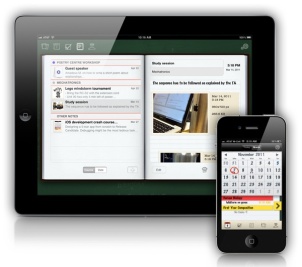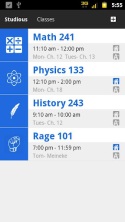The landlord-tenant relationship is often one of the most strained. For landlords, according to one of our previous posts, our expert, Diane St. Laurent, explained that this incompatibility often extends from the expectations and rules of the rental. For tenants (especially student tenants), this incompatibility may extend from poor communication and misunderstandings with landlords. This is why we’ve put together some tips to help both landlords and student tenants improve the renting process and improve this typically strained relationship.
For Landlords
Take a mentor role with your student tenants. According to St. Laurent, one of the most important things landlords can do is to take on a mentor role with students by “treating them as adults and [holding] them accountable for their decisions.” She explains that this is one of responsibilities landlords assume with renting to students, as this is the time that they will be assimilating to their independence and adjusting to all new responsibilities. By helping students through this process, it will not only help the landlord to feel that their tenants are making good decisions, but student tenants will feel more comfortable in maintaining their responsibilities.
Keep open and honest communication with tenants. According to St. Laurent, landlords are also accountable for building lines of communication with their tenants. In this way, student tenants will feel like their ideas, questions, and concerns are being heard, and landlords will feel that problems are more easily and swiftly resolved.
Be professional. According to St. Laurent, rentals should be managed like a business. This means that landlords should feel a sense of a responsibility of responding to problems and concerns of tenants to not only to keep tenants happy, but also to ensure that the property is well taken care of.
For Student Tenants
Pay your rent on time. One of the biggest problems landlords and tenants can have is late rent payments. This is not only a problem that will most likely create others, but it can also further exacerbate any existing issues within the relationship. Therefore, it is important for tenants to budget for and send their rent payments so that they arrive on time.
Follow the terms of your lease. As St. Laurent mentioned, one of the greatest problems can be incompatibility with landlords and tenants over the expectations and rules for the house. It is best to read your lease in full before signing, and address any concerns you may have with the terms at that time. Going forward, you should also keep a copy of your lease handy so that you can refer to it later, if needed. This will not only enhance the clarity of your lease, but it may also allow you to negotiate the terms of your lease.
Take care of your rental. This is not only your home, but it is also someone else’s property. Be sure to take good care of the property and to be mindful of the “wear and tear” that you inflict on a property. This will not only keep the property nice for you, but it will also help you keep your landlord happy and ensure that you get your entire damage deposit back.
Get to know your neighbors. Surprisingly enough, grouchy neighbors can be one of the biggest sore points between you and your landlord. This is because your neighbors will often report your “bad behavior” to your landlord. As we mentioned in our previous post on this topic, it is important to get to know your neighbors to avoid unnecessary conflicts and frustration with both them and your landlord.
Keep open and honest communication with your landlord. We advise this for both landlords and tenants. It is important that tenants let their landlords know when they have problems, when they need repairs, and especially when there has been damage to the property. While telling your landlord you’ve damaged something on the property may be difficult, it will be better to tell them right away. This will help to ensure that you maintain trust and honesty with your landlord.
However, you should also be mindful to be reasonable in your requests when you need something done. Avoid calling your landlord over when a light bulb needs to be changed. The things that you can do yourself are most likely the things you shouldn’t bother your landlord for. It’s the things you can’t do and don’t feel comfortable doing; these are the things you should be contacting your landlord for.
Overall, while landlord-tenant relationships are often strained, there are certainly things that both parties can do to improve their relationship. All it really takes is honesty, professionalism, open communication, and a sense of responsibility to ensure that the rental process goes smoothly.
References










